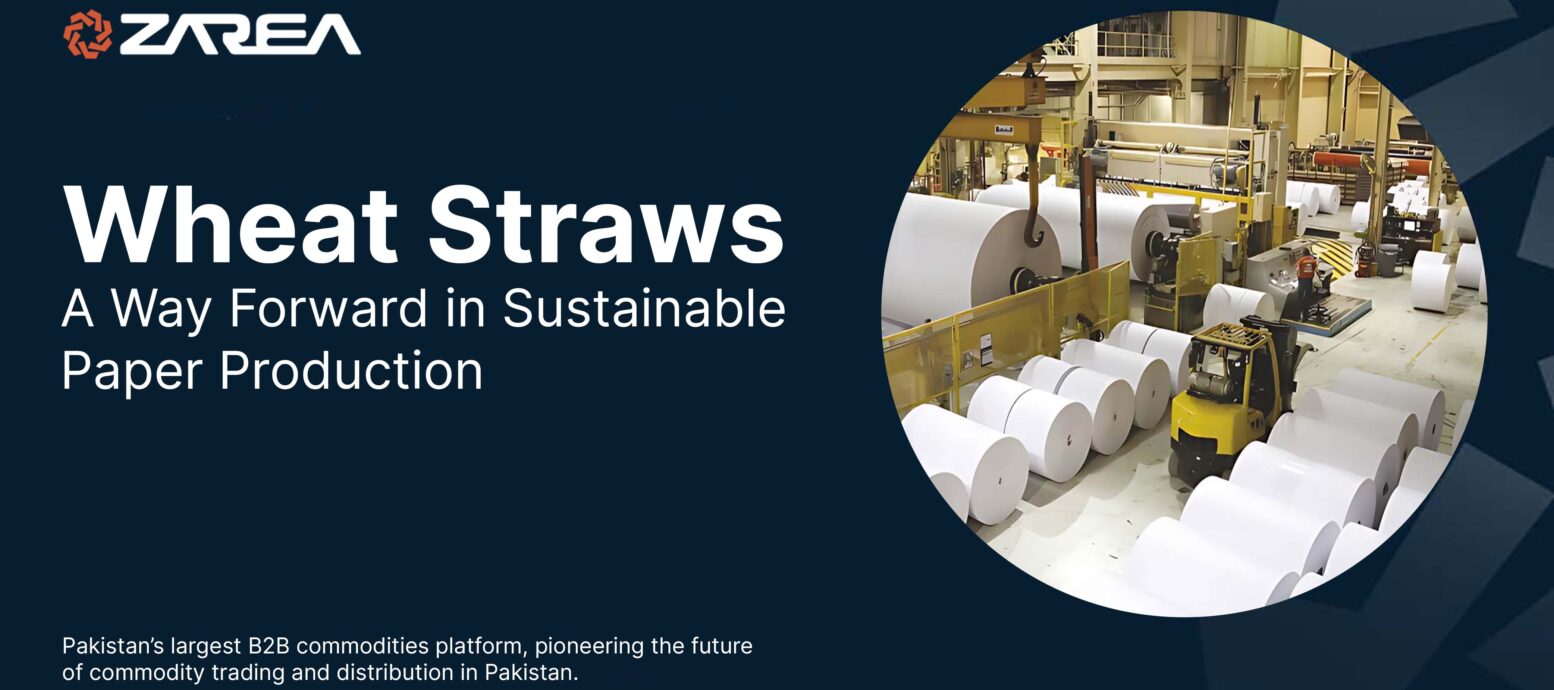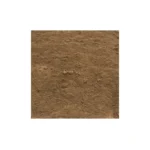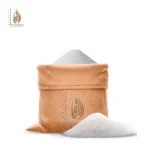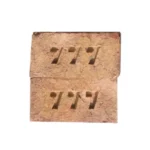Introduction – Wheat Straws:
Wheat straws are obtained as a by-product, after wheat grains are harvested, with a worldwide annual production of 529 million tons. One of the most readily available agricultural by-products is wheat straw. The carbon found in wheat straw was made up of 34 to 40% cellulose, 21 to 26% hemicelluloses, and 11 to 23% lignin. It is time to make strides in renewable and green resources through wheat straws and energy production. Finding alternative resources for industrial processes has become critical. The paper industry is looking at wheat straws as a promising alternative for sustainable paper production. Thus, Zarea Limited, being a conscious enterprise, provides you with quality straws of wheat at affordable rates to fulfill your business needs.
Traditional Management of Agricultural Residue:
Traditionally speaking, wheat straws are agricultural residues as it is the leftover stalks with a few conventional uses like animal bedding, mulching, and composting. Pakistan is an agricultural country due to which the residual agricultural waste is extensive. Agriculture residues are abundant in the region where wheat is harvested frequently. Managing and treating the residual waste is a task in itself, but today, we can utilize this agricultural waste consciously to generate resources that are eco-friendly and renewable.
Traditional Wood-based Paper Production:
Traditional paper industries rely solely on wood pulp for paper production which has significantly contributed to deforestation and climate change in the country. Environmental concerns and economic concerns are escalating rapidly therefore it is crucial to turn toward sustainable practices to minimize the impact.
Viable Raw Material for Sustainable Paper Production:
Paper industries need a viable and renewable raw material that will considerably reduce waste and deforestation. these straws are a promising and viable alternative for sustainable paper production in Pakistan. Utilizing agricultural residue in industrial processes will not only provide us with sustainable energy and resources but also will have a significant impact on the environment and waste management.
Benefits of Wheat Straws:
Zarea Limited promotes safe and sustainable practices in paper production by encouraging the use of agricultural biomass. Utilizing wheat straws in the process offers numerous advantages in terms of the environment, economy, and technology.
Conservation of Forests: It takes many years for trees to grow to maturity, unlike wheat which is harvested annually, making it a reliable, sustainable, and steady source of raw materials for the paper industry. Using wheat straws instead of wood for paper production will decrease the need for wood-based paper and aid in preserving forests.
Repurposing of Agriculture Waste: These straws are typically disposed of through burning or landfilling as they are considered agricultural waste. These activities pose a significant threat to the environment. Transforming wheat straws into paper products reduces agricultural waste by repurposing them.
Cost-Effective: These straw is an agricultural by-product therefore it is cost-effective and readily available at Zarea Limited.
Supporting Agriculture Sector: Farmers can generate extra revenue by selling this physical commodity to paper manufacturers and promoting their economic development effectively. In this way, agricultural residue becomes an opportunity to make extra income and promote sustainable practice simultaneously.
Versatility: Zarea Limited provides you with a top-notch supply of straws of wheat that can be repurposed into multiple paper and packaging products.
Brief Overview of the Papermaking Process:
The process of converting wheat straws into environmentally friendly paper products is carried out as follows:
- Collection and Cleaning: Wheat straws are gathered and subsequently sanitized to remove any impurities. Zarea Limited plays a crucial role in linking paper producers with the farming industry to guarantee a seamless transition and availability of wheat straws.
- Pulping: Then the wheat straws go through the pulping process and are rewashed.
- Bleaching and Refining: The product is then bleached to achieve the desired whiteness and refined to be transformed into paper.
- Papermaking: It is then subjected to the traditional papermaking processes and converted into the desired products.
Zarea Limited – Bridging Gaps between Wheat Farmers and Paper Manufacturers:
The paper sector in Pakistan is highly adaptable, and there is a rising need for environmentally friendly paper goods worldwide. Zarea Limited is the platform that supports the supply chain and promotes eco-friendly paper production using wheat straws.
Zarea Limited links wheat farmers with paper manufacturers by providing them with the space to sell and buy these straws at reliable and affordable rates. Our supply of wheat straws goes through rigorous quality assurance to meet the standards of sustainable paper production. Quality control helps manufacturers transform agricultural biomass into high-grade and sustainable paper products.
Conclusion:
Zarea Limited supports the sustainable paper production initiative and supplies wheat straws to promote the growth of a safe paper industry. These straws are worth the hype and they align with global sustainability goals when it comes to paper production. Along with its technical and economic benefits, it is an innovative resource.
FAQ’s:
What are wheat straws?
Wheat straw serves as a renewable and sustainable option for certain solid plastics, such as disposable picnic plates that are not permanent. It has received FDA approval and is free of BPA, made from food-grade material. Not surprisingly, the material is created from a natural waste product of wheat farming.
Is wheat straw a waste?
Wheat straw is a superior option to regular plastic, particularly when considering its environmental effects. It can be renewed, is frequently biodegradable, and aids in waste and carbon footprint reduction.


































